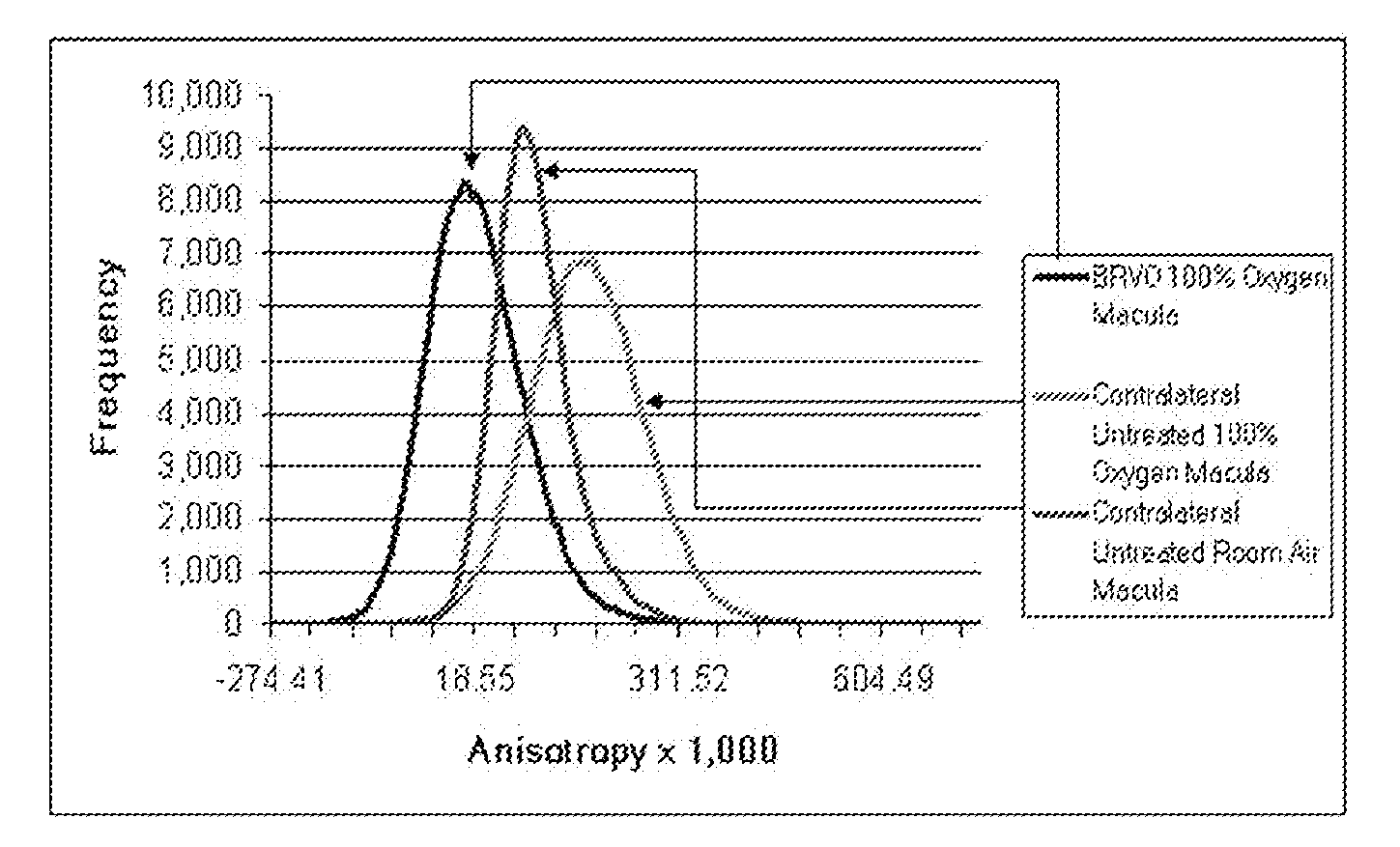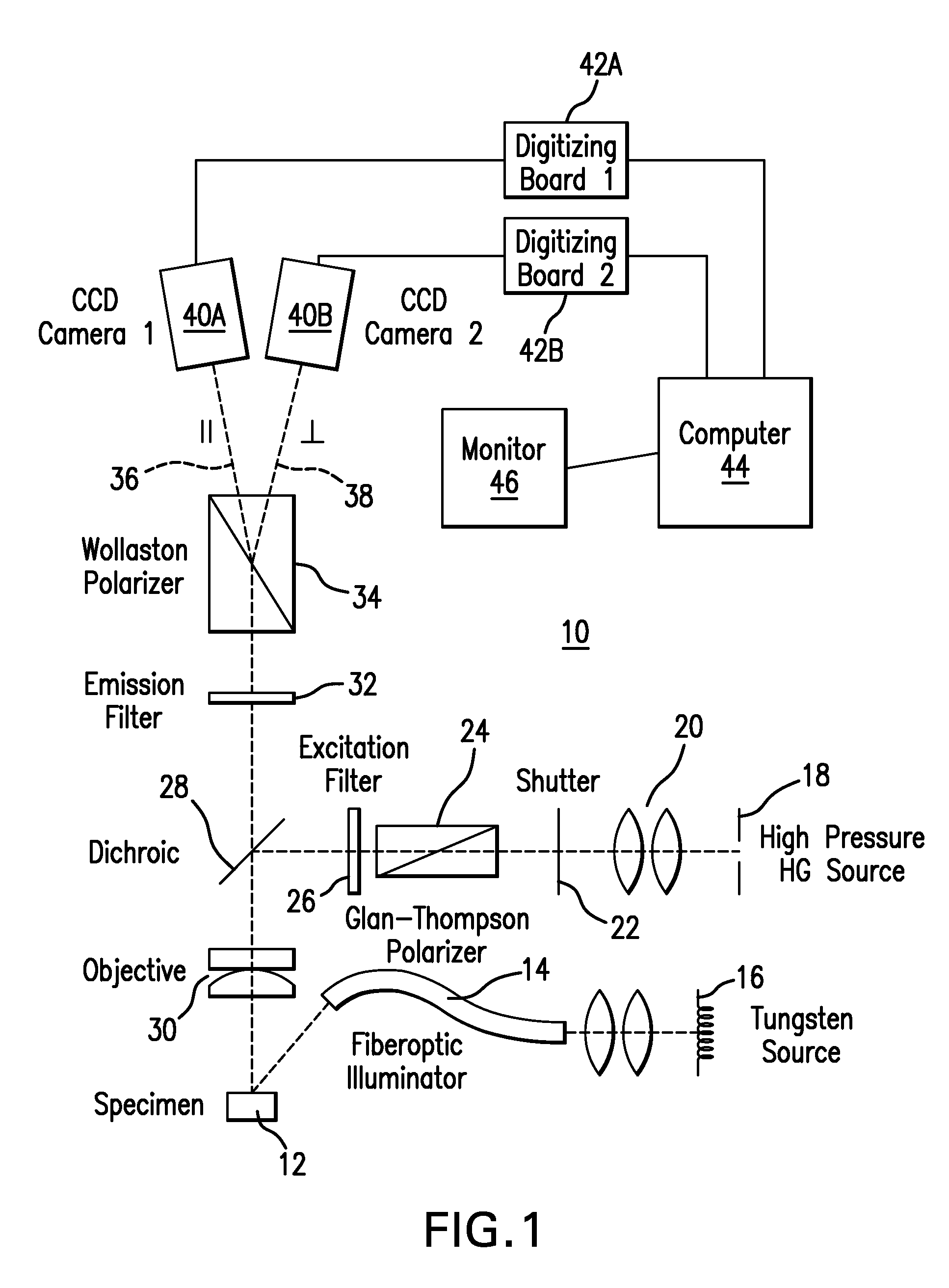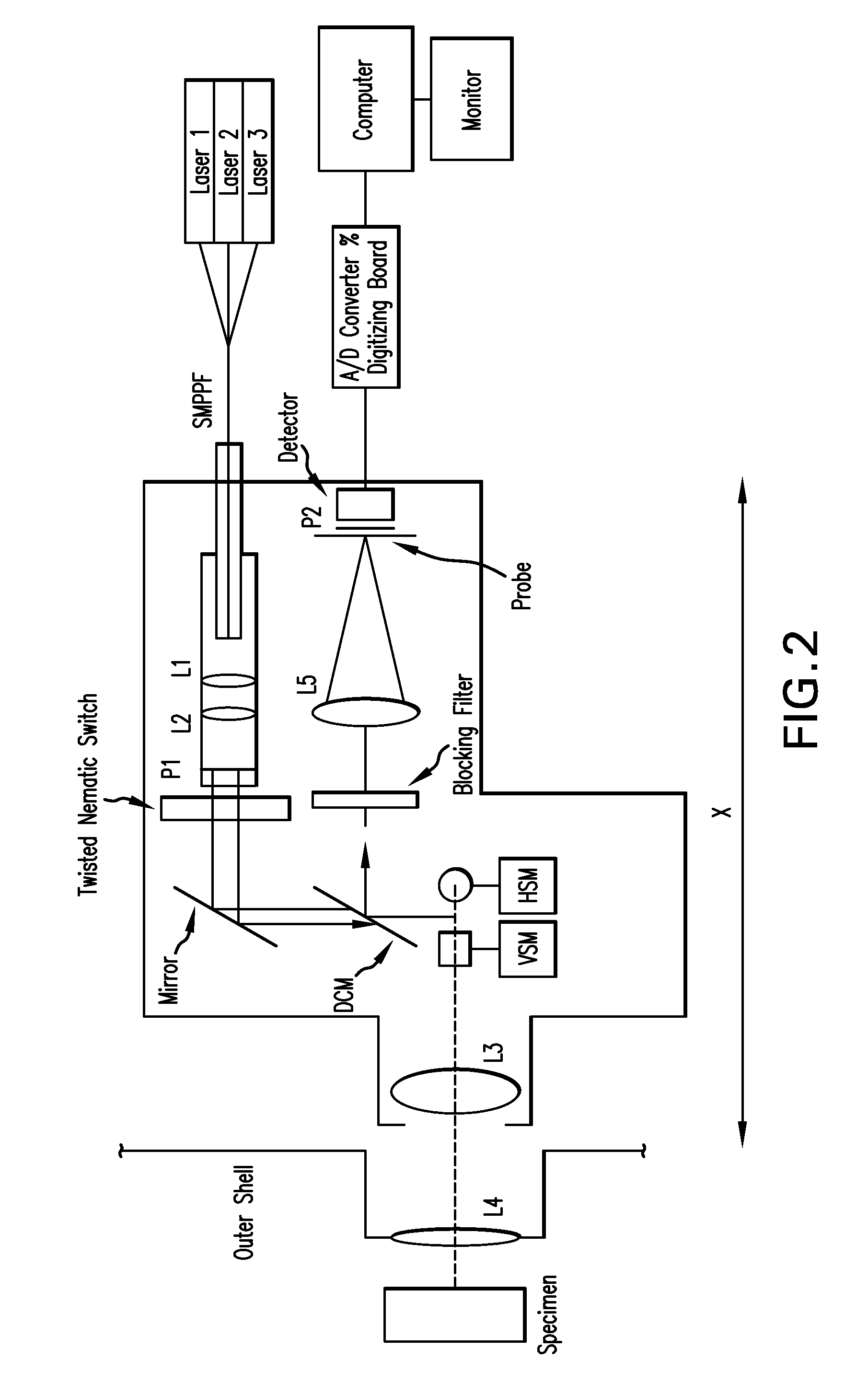Method and apparatus for the non-invasive measurement of tissue function and metabolism by determination of steady-state fluorescence anisotropy
a steady-state fluorescence anisotropy and tissue function technology, applied in the field of biological tissue non-invasive measurement of functions, can solve the problems of crude resolution, high implementation cost, and inability to accurately measure the so as to achieve calibration-free measurement of metabolic rate and function, non-invasive determination, and high resolution. the effect of high accuracy
- Summary
- Abstract
- Description
- Claims
- Application Information
AI Technical Summary
Benefits of technology
Problems solved by technology
Method used
Image
Examples
Embodiment Construction
[0044]FIG. 1 provides a schematic diagram of an apparatus 10 designed for the topographic, 2-dimensional, mapping of tissue function and metabolism non-invasively in an imaged tissue. Specimen 12 includes one or more biological tissues which contain one or more substances, called fluorophors, which fluoresce when illuminated.
[0045]Specimen 12 is illuminated with nonpolarized visible light by a fiberoptic illuminator 14 utilizing a tungsten source 16. The radiant energy of a xenon arc lamp 18 is gathered by a collector lens 20, and is selectively allowed to pass through shutter 22. The light then passes through a Glan-Thompson polarizer 24 (obtained from Ealing, Inc.).
[0046]The light is spectrally shaped by an excitation filter 26 and is then reflected by a dichroic mirror 28 (obtained from Omega Optical) which reflects excitation wavelengths through an objective lens 30 to the imaged tissue, causing fluorophors in the tissue to fluoresce.
[0047]Emitted luminescence from the excited t...
PUM
| Property | Measurement | Unit |
|---|---|---|
| partial pressure | aaaaa | aaaaa |
| diameter | aaaaa | aaaaa |
| wavelengths | aaaaa | aaaaa |
Abstract
Description
Claims
Application Information
 Login to View More
Login to View More - R&D
- Intellectual Property
- Life Sciences
- Materials
- Tech Scout
- Unparalleled Data Quality
- Higher Quality Content
- 60% Fewer Hallucinations
Browse by: Latest US Patents, China's latest patents, Technical Efficacy Thesaurus, Application Domain, Technology Topic, Popular Technical Reports.
© 2025 PatSnap. All rights reserved.Legal|Privacy policy|Modern Slavery Act Transparency Statement|Sitemap|About US| Contact US: help@patsnap.com



